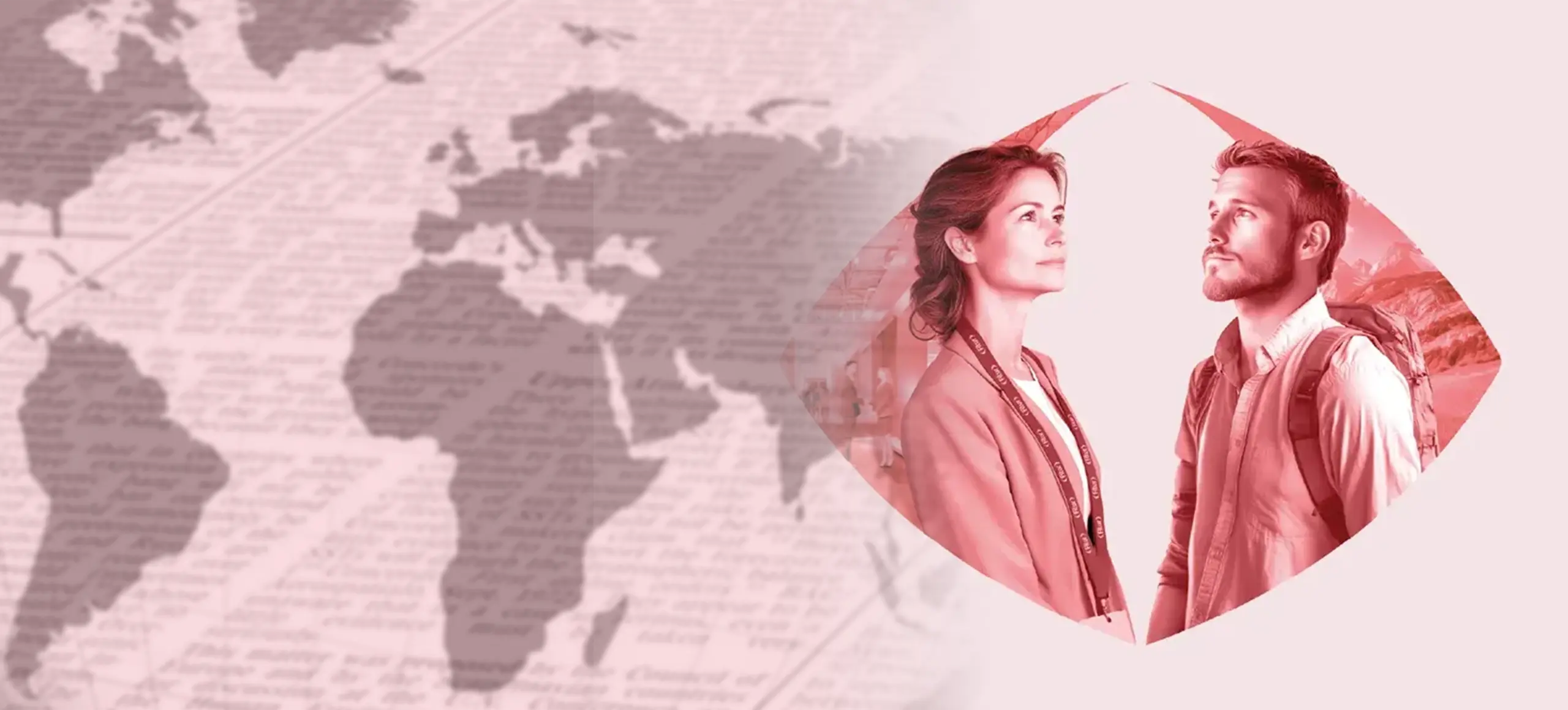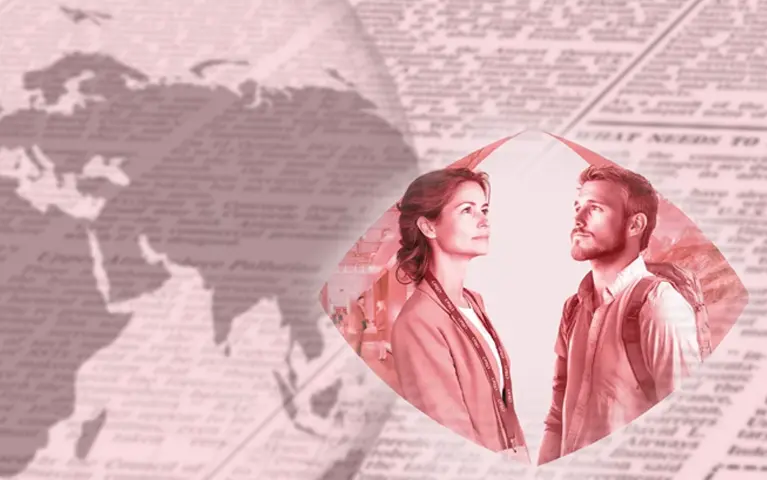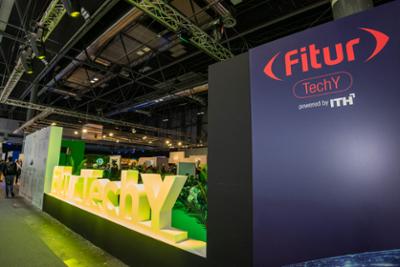

Technology, Sustainability, and Innovation Define the Future of Tourism at FITURTECHY 2025
Tourism sector experts and technology leaders established guidelines for the technological evolution of tourism.
The power of Artificial Intelligence and social media marked the conclusion of FITURTECHY 2025.
FITURTECHY, the leading platform for technology, innovation, and tourism sustainability, organized by FITUR and the Hotel Technological Institute (ITH), celebrated its 17th edition, inspired by the tales of “One Thousand and One Nights.” Over three days of the International Tourism Trade Fair at IFEMA MADRID, the event hosted prominent figures from the tourism sector, consolidating itself as the main knowledge hub for technology, business, destinations, and sustainability in tourism.
The opening sessions were led by representatives such as Luis Martín Izquierdo, Deputy Minister of Culture, Tourism, and Sports of the Community of Madrid, who highlighted the role of technology in the hospitality sector as part of the 19th edition of the section, and emphasized the positive evolution of tourism data in the Community of Madrid. Jordi Hereu, Minister of Industry and Tourism, was also present during these inaugural sessions, where he reminded attendees of “the significant challenge sustainability poses for a country that welcomes 94 million tourists.”
From January 22 to 24, professionals participated in presentations spanning four thematic pillars: TechYnegocio: “Aladdin 4.0: The Business and Its Magic Lamp,” sponsored by AdQuiver. TechYFuturo: “The Genie of Tomorrow’s Desires,” sponsored by American Express. TechYdestino: “A Magic Carpet to Explore the World,” sponsored by Maarlab. TechYsostenibilidad: “The Oasis in the Desert,” sponsored by Veolia and the TechYhotel space, showcasing the innovative hotel of the future, was supported by Enovam as the energy partner and Telefónica Empresas as the technology partner.
TechYnegocio comprehensively explored the economic, technological, and experiential changes shaping tourism’s future. Topics included macroeconomic analysis, Next Generation Fund strategies, revenue optimization, and experience personalization. The segment emphasized innovation and public-private collaboration for sustainable sector development. Discussions addressed Artificial Intelligence (AI), robotics, customer and employee experiences, and differentiation strategies through content creation and social media. Key participants included Jorge Marichal (CEHAT), Pablo Díez (Uground), and Rebecca Johnson (Foundever). A unique contribution came from virtual influencer Alba Renai, highlighting emerging trends in tourism technology. The Sergestur Awards were also presented, recognizing “The 150 Most Influential Professionals in Spain’s Tourism Sector.”
In TechYFuturo, the challenges and opportunities of tourism in the context of digital transformation were addressed, highlighting the impact of artificial intelligence, innovation in smart tourist destinations, and the personalization of experiences. The presentations and debates covered topics ranging from the creation of sustainable metropolises to the development of strategies for premium clients, with experts such as Jesús Gatell (ITH), Julia López (American Express), and Jesús Serrano (Microsoft). Technological tools for enhancing the hotel experience and strengthening direct distribution were analyzed, while debates on data usage, Smart Cities, and marketing dynamics emphasized the importance of connecting technology and emotions to satisfy the modern traveler. Additionally, practical workshops on artificial intelligence and roundtables on training in smart tourism highlighted the relevance of collaboration and training to lead the future of the sector. With notable interventions and reflections on sustainability and humanization, TechYFuturo has been a key space for the exchange of ideas and innovation in global tourism.
TechYdestino focused on digital transformation, sustainability, and personalization as key pillars for the development of smart tourist destinations. Over the course of three days, experts and industry leaders debated the impact of technology on improving the management of mature destinations and creating personalized experiences, highlighting how artificial intelligence is redefining standards and optimizing traveler satisfaction. Presentations such as those by Raúl Domínguez (Maarlab) and Álvaro Carrillo de Albornoz (ITH) addressed innovative topics like blue tourism and digital twins in destinations. Additionally, roundtables explored trends such as the rise of wellness tourism, smart mobility, and the challenges faced by destinations in the digital era, featuring prominent voices like Kike Sarasola (Room Mate Hotels) and representatives from the Alliance of Tourist Municipalities of Sun and Beach (AMT).
The AMT Smart Destinations Awards 2025 recognized technological innovation in projects such as Ok Located, Freeplantour, Barceló Hotel Group, Murmuration, and the Las Palmas de Gran Canaria City Council for their successfully implemented tech solutions.
Finally, TechYsostenibilidad highlighted the importance of integrating sustainability into every aspect of tourism, from the traveler’s experience to the management of destinations and urban services. Throughout the event, innovations such as the ITH TechYroom 2.0, a sustainable and technological room model presented by José Picó, were explored, and discussions were held on how hotels can become beacons of sustainability and engines of local development. Presentations by experts such as Javier García Cuenca (ITH) emphasized the need to combine comfort with respect for the environment, while debates led by figures like Ana Muñoz (Secretary of State for Tourism) addressed the transformative role of sustainable design and responsible tourism. Additionally, urban initiatives to attract talent and create more competitive and sustainable cities, as discussed in the "Cities Forum," highlighted the connection between technological innovation and sustainability. In its final session, the forum focused on marketing strategies to attract diverse traveler segments, in collaboration with members of UN Tourism.





